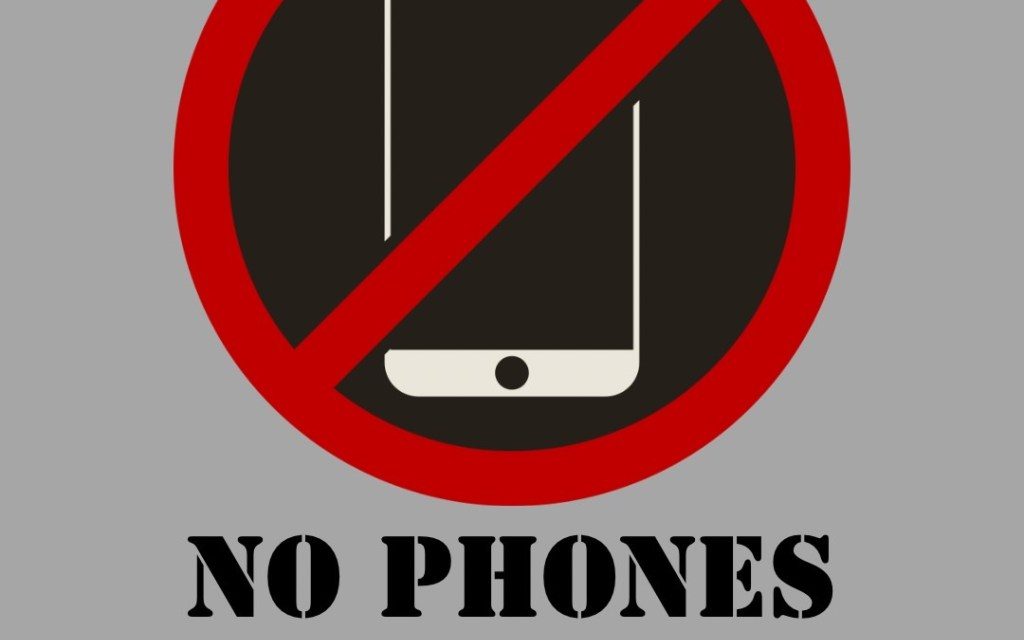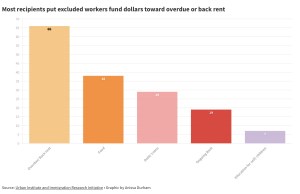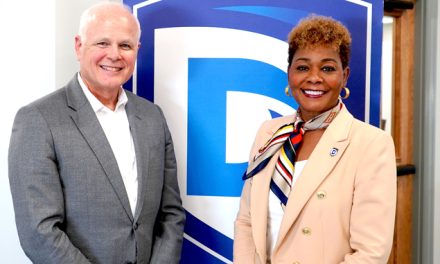By D. Kevin McNeir
Special to the AFRO
When Virginia Gov. Glenn Youngkin issued instructions for his administration to develop guidelines limiting the use of mobile phones by students during the school day, it remained to be seen whether a cell phone-free policy would be easily accepted or lead to outrage.
Youngkin, upon issuing Executive Order 33 on July 9, said he hoped to eliminate obvious distractions caused by the use of cell phones during instructional time, which includes lunchtime and breaks between class periods, while also citing the impact of social media on the mental health of youth.
In August, the Virginia Department of Education (VDOE) published a draft of its guidelines following several public events that allowed parents, teachers and students to provide input on the new policy which will become effective in Virginia public schools on Jan. 1, 2025.

Beginning next year, students must turn off and keep their phones put away throughout the day, including during lunch and between class periods.
“This guidance will ensure K-12 Virginia students have a distraction-free environment to focus on learning and reduce the alarming mental health crisis and chronic health conditions from cell phones and social media affecting Virginia students, ” the VDOE said in a press release on Sept. 17.
However, there will be some flexibility. Elementary school students, with the approval of their parents, will be allowed to take a cell phone or personal electronic communication device to school, but it must be turned off and stored away during the school day and cannot be used on school grounds either before or after school.
Middle school students should not have easy access to cell phones during the bell-to-bell school day but school districts will be allowed to develop local policies as to whether devices can be used on school property before and after school. High school students will be allowed to use their cell phones on school grounds but only before and after school.
Similar policies have grown in popularity across the nation, with America’s three most populous states, California, Florida and Texas, already having introduced or enacted legislation limiting the use of cell phones in schools in efforts to boost students’ mental health and academic performance. And officials in New York say they’re considering implementing a cell phone ban as early as next year.
Meanwhile, closer to home in Maryland and Washington, D.C., public school systems have a variety of guidelines on the use of cell phones during the instructional day and before or after school, dependent on the academic level of students, whether students are utilizing cell phones during school-sponsored activities or if students have special needs or disabilities that might require access and use of cell phones.
Views from the frontline
Valiant Binns, 56, an eighth grade mathematics teacher in Prince George’s County Public Schools, said the County’s Board of Education policy for cell phones, which for his students means being allowed only before and after school hours, has not been difficult to enforce. In fact, Binns, who has been an educator for 24 years, said he’s been limiting the use of cell phones in his classes for the past five years and is more than pleased with the results.
“I purchased a locker with 36 slots and when my students enter the room, they put their phones into a slot designated for each student,” Binns said. “Our school theme has been ‘game changers’ and with that in mind, I told my students on the first day of school that our class would be a ‘no cell phone zone.’
“It’s been amazing how easily they have adapted to the policy. Before, in moments of boredom or with their phones vibrating which led to them being distracted, it was hard to keep my students focused. They were routinely looking at their phones. But now, they know to put their phones in the locker before they take a seat and I have not had one student complain. In fact, some students forget their phones at the end of class and have to come back later to retrieve them,” Binns added.
Charlene White, 38, who has two children, ages 9 and 11, enrolled in schools in Montgomery County, Md., said she’s already instructed her children to put their phones away during school unless they feel it’s imperative to reach her. And she wants to maintain that degree of unfettered communication.
“I’ve trained my children to keep their phones away…. But I reserve the right for my children to always be able to reach me at any moment,” she said.
White said her oldest was participating in a program at a Baltimore university when she and her classmates actually witnessed another youth being chased and shot outside of their classroom window.
“I know that’s not the norm, but that incident alone was enough for me to require that she always have her phone on her person and be able to use it to get me,” the Liberian American said. “She’s much better now but that experience was traumatic. I can only imagine how she would have reacted if she had not been able to get me on the phone right after the shooting.”
White’s daughter, Nevaeh, who participates in gymnastics and band, in addition to other activities, said, “I don’t use my phone in school. I need to listen to my teachers and learn as much as I can. And social media isn’t something that I use anyway.”
Brigette Squire, 36, the mother of an 11-year-old boy who attends a magnet performing arts middle school in Baltimore, agrees with policies that require cell phones not be used during instructional hours but believes that they should be available for children before and after school and during lunchtime.
“It’s parents, not teachers and other officials, who should be enforcing the amount of time that children spend on their phones,” Squire said. “My son reminds me that all of his friends have cell phones and they communicate on them all of the time. But I place strict limits on how long he can use his phone.
“I recently was delayed picking him up from school and because he had left his phone at school, I could not reach him for nearly two hours. That was two hours of panic. So, he’ll have his phone on him at all times from now on,” she said.
Still, Squire’s son, Matthew, said he likes having his cell phone and especially likes the things he can do with it.
“I play games on my phone a lot with my cousins and it’s fun,” Matthew said. “And I’ve gotten used to using ChatGPT which makes it easier to explore things and ask questions. I’m even using my cell phone to write my own book about kids like me using technology.”
The post Cell-free schools gaining popularity – even among students appeared first on AFRO American Newspapers.











